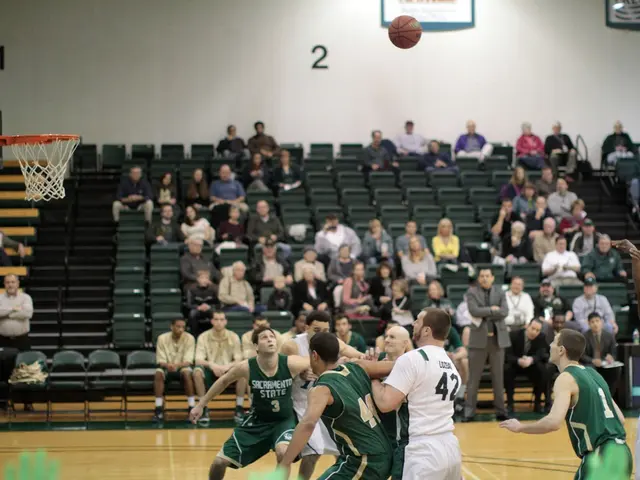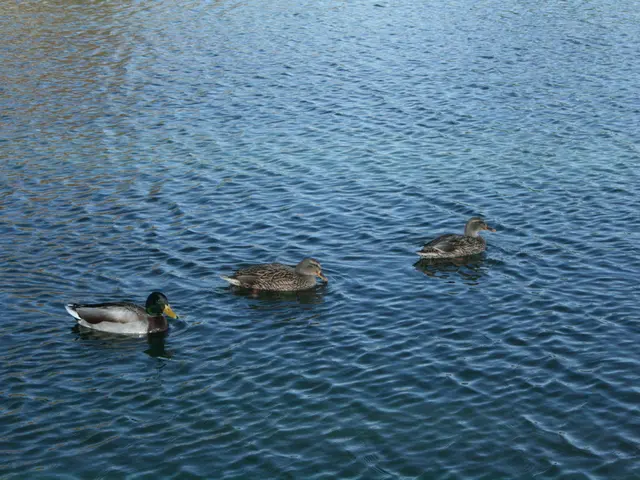Berlin Sets Sight on Memorial Honoring 'Guest Workers' Amid Skills Shortage
It's time to shower some appreciation on the unsung heroes of Germany's past—the so-called "guest workers." Budapest-Berlin coalition has proposed allocating funds for a memorial honoring these migrants' accomplishments, as part of budget negotiations. Sevim Aydin, an SPD member of parliament, commends this development, stating, "It's a good time for this."
The situation mirrors the 1960s, when Germany sought labor from predominantly southern European and Turkish nations due to a dire shortage of skills. Now, once more, the country grapples with a scarcity of highly skilled personnel. This renewed dialogue concerning foreign workers has prompted a fresh discussion about migrations and integration.
A Memorial: A Sign of Recognition
A monument honoring the initial generation of overseas laborers, mainly those who hailed from southern Europe and Turkey, may contribute to the ongoing debate about migration and integration. Sevim Aydin, an integral part of this project's progression for numerous years, asserts, "These people have until now been overlooked in our conversations. It's high time to recognize and commemorate them."
In parallel, a monument will be erected for the contract workers of the former German Democratic Republic (GDR). These individuals were recruited from Vietnam, Hungary, Mozambique, Angola, Nicaragua, and other nations, starting in the 1960s. During the budget negotiations, the CDU and SPD agreed to allocate a combined €500,000 for both projects in 2024/2025.
Two Separate Memorials, Two Distinct Stories
Aydin supports the concept of two uniquely distinct memorials, with plans for both erections in Friedrichshain-Kreuzberg district. The area council has already investigated the issue, finding harmony and divergence between these two groups. The proposed guest worker monument will likely be situated at Oranienplatz.
Unveiling the memorial's design remains an open discussion, with Aydin emphasizing that "It's more than just putting up a statue." She believes that the monument should convey the emotional experiences of immigrants who left their native lands to seek employment in Germany.
The memorial's title still remains unchosen, with Aydin contending that "Gastarbeiter:innen-Denkmal" is suitable, given its historical context. Discussions regarding the first generation's opinion about the memorial are crucial, she insists.
Taking a Deeper Dive:
- Germany's labor market grapples with a shortage of skilled workers that echoes the historical need for guest workers during the 1960s.
- Berlian authorities plan to erect a memorial to honor the accomplishments of guest workers, igniting conversations surrounding migration and integration.
- SPD MP Sevim Aydin, a child of guest workers who resettled in Berlin, advocates for the memorial, viewing it as a means to recognize the contributions of these workers to Germany's prosperity.
- The recent political discourse in Germany revolves around migration policy, with parties like the Christian Democratic Union (CDU) proposing stricter measures to counteract fears of far-right populist movements.
- The ongoing debates about migration and integration in Germany highlight the importance of acknowledging and valuing the contributions of migrant workers to ensure a more inclusive society.
Source:
Enrichment Data:
Contemporary migration policies have become a focal point of political discussions in Germany. The German Institute for Economic Research (DIW) outlines the need for migrant workers to address the country's labor shortage, which could impact economic growth if left unaddressed (Source: [1]). DIW proposes various suggestions like enhancing access to affordable childcare and incentivizing women to work beyond middle age, alongside advocating for foreign labor recruitment.
The recent political landscape in Germany has been marked by discussions on migration policy, notably after a tragic knife attack in Bavaria. The CDU leader, Friedrich Merz, has proposed stricter migration policies, which may involve tightening boundaries and expediting deportations, potentially in collaboration with the populist right-wing AfD (Source: [2]). This conservative shift reflects broader European trends where center-right political parties adapt to more stringent immigration policies to curb the rise of far-right populist movements.
The lack of a specific memorial plan in the provided sources does not undermine the importance of recognizing and valuing the contributions of migrant workers. The ongoing discussions on migration and integration in Germany signal the potential for integrating these experiences into a more inclusive narrative.
[1]
[2]








